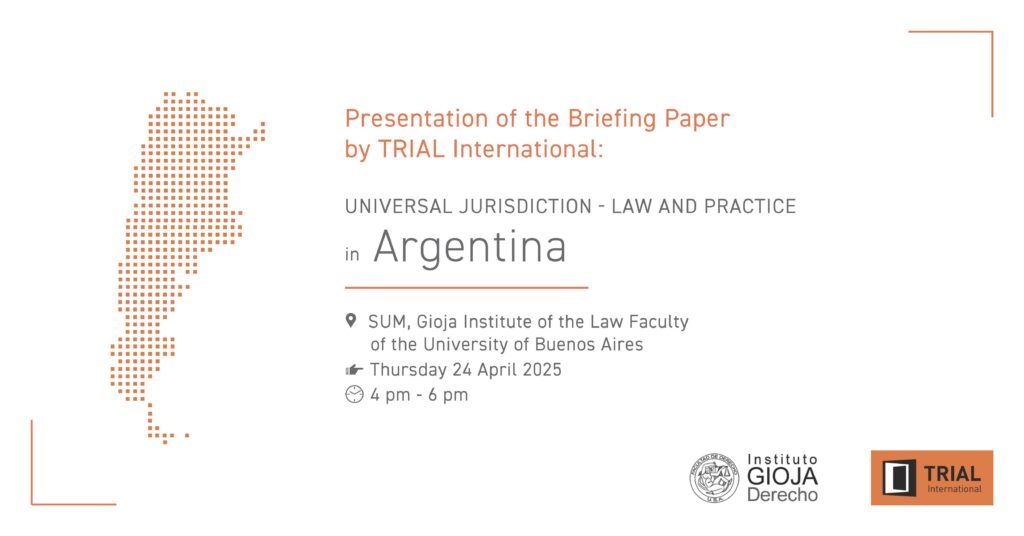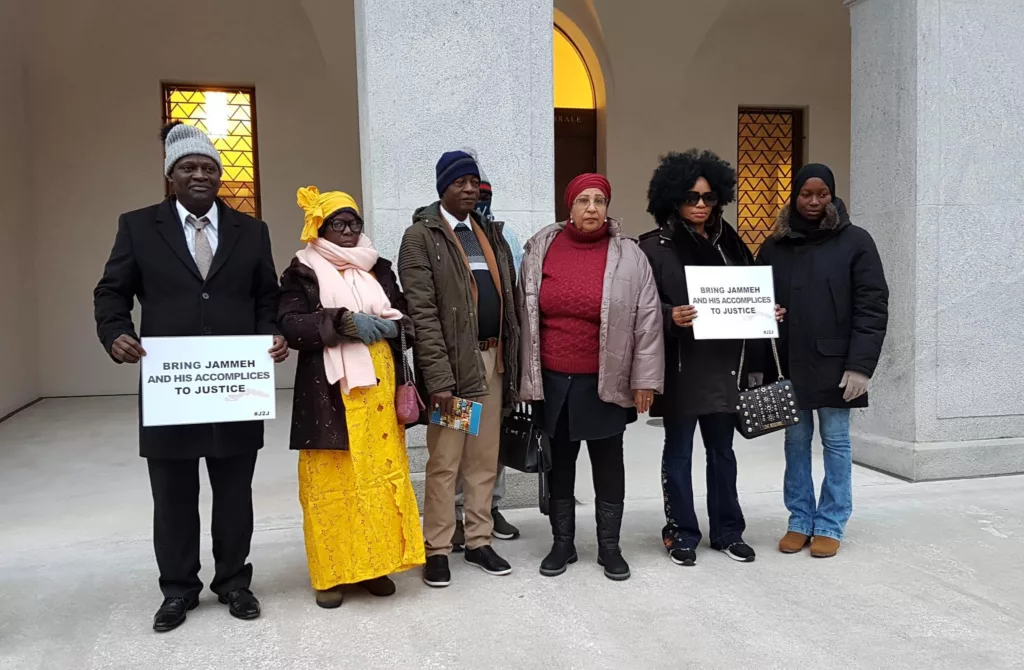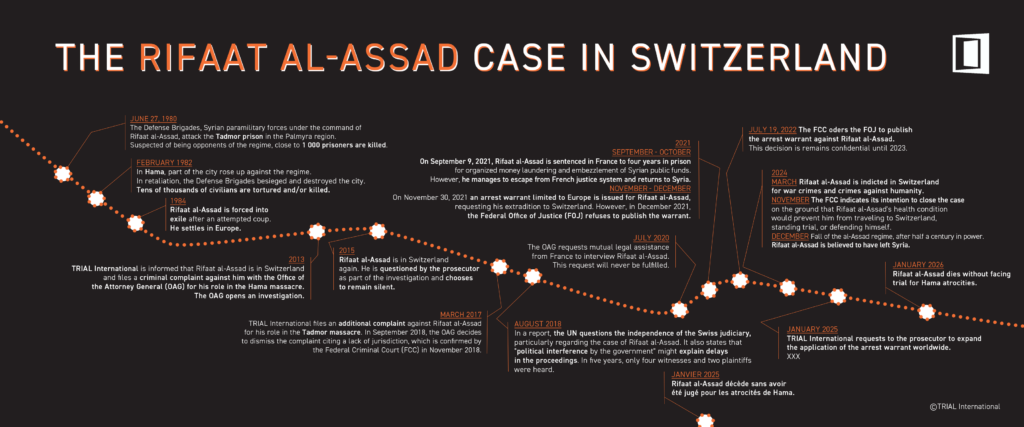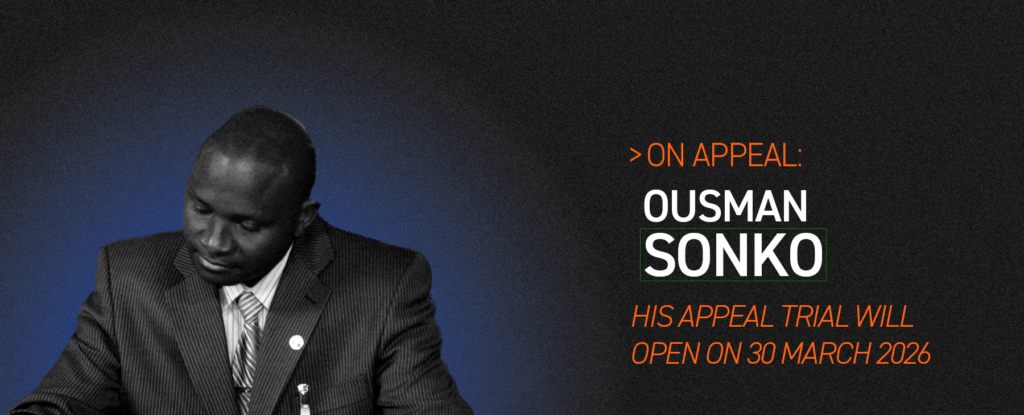Universal jurisdiction law and practice in Argentina
Universal Jurisdiction cases have so far mostly been prosecuted and investigated in Europe or North America, with one significant exception: Argentina. Nearly a dozen cases of international crimes committed abroad are currently before its judges and prosecutors. To support legal practitioners and civil society actors engaged in building and litigating international crimes cases based on extraterritorial and universal jurisdiction in Argentina, TRIAL International publishes today a briefing paper – available in English and Spanish – which provides an overview of the country’s legal framework regarding the investigation and prosecution of international crimes, along with its practical application.
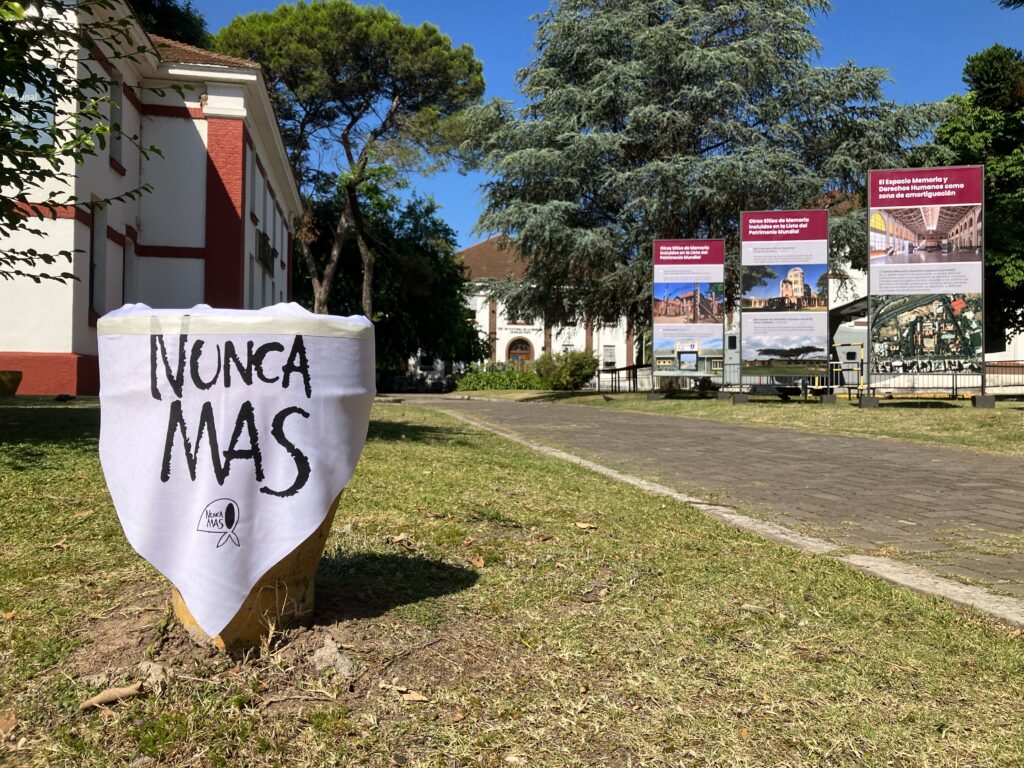
Universal jurisdiction for practitionners
By virtue of the principle of universal jurisdiction, States have the possibility, and sometimes the obligation, to prosecute those responsible for international crimes – namely genocide, war crimes, crimes against humanity, torture and enforced disappearances – regardless of where the crime has been committed, of the nationality of the perpetrator or that of the victim. However, universal jurisdiction frameworks differ from one country to another, which makes it complex for legal practitioners to build and litigate cases in unfamiliar jurisdictions.
In order to support lawyers, NGOs and victims’ representatives in the development of their litigation strategies, TRIAL International and Open Society Justice Initiative (OSJI) have already published 12 briefing papers analyzing the law and practice of universal jurisdiction in: Belgium (also available in French), Canada, England & Wales, Finland, France, Germany, the Netherlands, Norway, Sweden, Switzerland and the USA. TRIAL International is now expanding this series by looking at countries other than European and North American jurisdictions, starting with Argentina.
The series aims to foster a better understanding of domestic justice systems among legal practitioners to support the development of effective litigation strategies. The research is primarily based on desk analysis and complemented by interviews with legal experts such as specialized prosecutors and investigators, lawyers litigating universal jurisdiction cases, academics specializing in international criminal law and NGOs supporting victims in their fight against impunity.
Challenges and opportunities of universal jurisdiction cases in Argentina
The 2025 Universal Jurisdiction Annual Review (UJAR) records and provides summaries of almost 100 cases. In 2024, 36 new cases were opened or made public worldwide, and 27 suspects were convicted in first instance or on appeal. These figures highlight, once again, that universal jurisdiction is an effective tool to challenge impunity for international crimes.
In Argentina, there are currently at least seven on-going universal jurisdiction cases, which are included in the UJAR. According to data from the Argentinian Public Prosecutor’s Office, investigations based on universal jurisdiction have been opened in the country in cases of crimes committed in: Azerbaijan, Bolivia, China, Colombia, Cuba, the Gaza Strip, Israel, Myanmar, Nicaragua, Russia, Spain, Turkey, Venezuela and Yemen (see Pautas Generales de Actuación del Ministerio Público Fiscal de la Nación sobre Jurisdicción Universal). Only during the past 12 months, Argentinian judges have issued international arrest warrants in three cases, targeting – among others – former Burmese President Aung San Suu Kyi, current Venezuelan President Nicolás Maduro and current Nicaraguan President Daniel Ortega.
Argentina has adopted, so far, the principle of absolute universal jurisdiction, which does not require the presence of the perpetrators or the victims on its territory, nor on them being Argentinian nationals or residents. Associations and organizations that defend collective rights may also be recognized as plaintiffs in UJ cases in Argentina.
However, significant challenges remain. Among them is:
- the fact that there is no specialized unit for investigating universal jurisdiction cases,
- the large interpretation of the principle of subsidiarity in some cases, and
- the fact that most cases of universal jurisdiction have not moved beyond the defense statement stage, since the accused have not been extradited and have not attended court voluntarily.
Some investigations have also been ongoing for a prolonged period of time, such as the one opened for crimes committed in Spain during the Francoist dictatorship, which started in 2010.
The Briefing Paper on UJ in Argentina has been researched and drafted by Bénédict De Moerloose, from Peter Moreau, and Máximo Castex. It is available in English and Spanish and was presented during an event organized in collaboration with the University of Buenos Aires on 24 April 2025. You can watch the recordning of the event on Youtube. (in Spanish)
